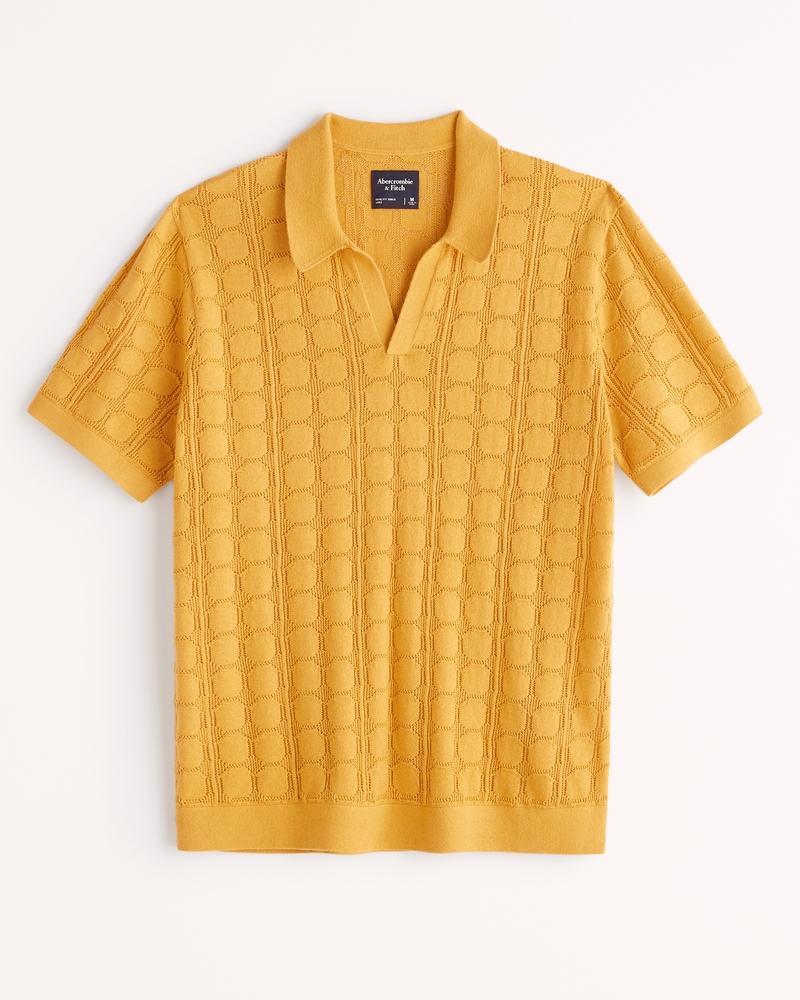Men’s Johnny Collar Textured Sweater Polo | Men’s Tops | Abercrombie
Comfortable short-sleeve sweater polo in a luxe sweater-knit fabric and relaxed-fit silhouette, featuring, no-button Johnny collar and textural stitching details throughout. Imported.
Johnny Collar Textured Sweater Polo
Comfortable short-sleeve sweater polo in a luxe sweater-knit fabric and relaxed-fit silhouette, featuring, no-button Johnny collar and textural stitching details throughout. Imported.
Body:55% Cotton, 30% Recycled Polyester, 15% Polyester
- Machine wash cold, with like colors
- Only non-chlorine bleach
- Reshape and lay flat to dry
- Low iron if needed
- Do not dry clean
Store Item: 120-201-1971-800
Web Item: 438256/120-1032-1971-800
Additional information
| Size & Fit | Model: 6'2" wearing size M |
|---|






Reviews
There are no reviews yet.